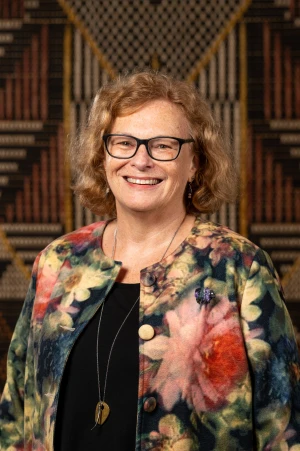Kia ora koutou and welcome to our quarterly update.
 Lots of activity is currently taking place across our organisations and with partners. Following the successful launch of the National Strategy for Financial Capability in November, work is underway on several of the first-year initiatives. It was fantastic to host our first Connection Series event at the end of last month, which brought some interesting views and insights into what Aotearoa might be like in 2050. For those who couldn’t make it, a full recording is available to watch here, and you can read NZIER’s analysis and projections, using Treasury and NZ Stats data here.
Lots of activity is currently taking place across our organisations and with partners. Following the successful launch of the National Strategy for Financial Capability in November, work is underway on several of the first-year initiatives. It was fantastic to host our first Connection Series event at the end of last month, which brought some interesting views and insights into what Aotearoa might be like in 2050. For those who couldn’t make it, a full recording is available to watch here, and you can read NZIER’s analysis and projections, using Treasury and NZ Stats data here.
This report supports some of the work we’re doing on the 2025 Review of Retirement Income Policies, which will be followed by a number of other research releases delving into our retirement system.
I was really pleased to hear from Associate Minister of Housing Hon Tama Potaka that he’s aiming to speed up the review of the Retirement Villages Act. The Act hasn’t been reviewed for two decades, and the review work has been ongoing since 2021. The Minister has signalled that, subject to Cabinet decisions and the availability of house time, the legislative drafting process is to commence in early 2026, with an amendment Bill being introduced in July next year. We’re working closely with the Ministry of Housing and Urban Development to progress the policy options.
Finally, it was great to meet our new minister, Hon Scott Simpson, in March to brief him on our work programme for the rest of year. I was very pleased by his interest in our work. I’d also like to thank former Minister Hon Andrew Bayly for his enthusiasm and encouragement.
Jane Wrightson, Mana Ahungarua/Retirement Commissioner
National Strategy for Financial Capability 2025–2027
It’s excellent to see a number of the new National Strategy 2025 projects kicking off. They’re all projects that would be unlikely to be undertaken outside of the catalyst of the Strategy because they involve multiple partners across the sector.
On March 26, the first event in our National Strategy Connection Series, Aotearoa New Zealand 2050, was held at the ANZ Centre in Tāmaki Makaurau Auckland. The inaugural Connection Series gathering of members of the financial capability sector examined what key demographic shifts will mean for the country’s future wellbeing. A panel of thought leaders including Te Ara Ahunga Ora’s Director of Policy Dr Patrick Nolan; founder of Figure NZ and co-founder of Victory & Grace, Lillian Grace; CEO of Hospitality NZ, Steve Armitage; and Director of Sustainability & Financial Inclusion at Te Pūtea Matua Reserve Bank of New Zealand, Susan Livengood (pictured from left with Te Ara Ahunga Ora’s Stakeholder Lead Kate Hannah) shared their insights and hopes for what the next 25 years could bring and how the decisions we make today will play out tomorrow.
The beginnings of another National Strategy initiative, this one to encourage better access to professional financial advice, saw Stakeholder Lead Kate Hannah take the stage in Ōtautahi Christchurch’s Te Pae convention centre earlier this month. Shaping the Future of Advice – the 2025 National Adviser Conference from Financial Advice New Zealand, the peak body representing financial advisers in Aotearoa New Zealand – presented a top line-up of speakers from the financial capability sector and beyond. Kate was part of the conference wrap-up alongside Financial Advice NZ’s Chief Executive, Nick Hakes, presenting a challenge and an opportunity: how is the financial advice community going to support people through life’s key milestones in an ever-changing Aotearoa New Zealand?
Further outreach to financial advisers was possible through two opportunities at the end of last month. The first was Monsters in March, a multi-city roadshow for advisers put on by Quality Product Research (the team behind Quotemonster), and the second an adviser conference from KiwiSaver provider Kernel in Ōtautahi Christchurch. At each, Te Ara Ahunga Ora’s Personal Finance Lead Tom Hartmann was able to present recent KiwiSaver research, insights and developments to participants at both events, including our data on KiwiSaver balances (see below), Older People’s Voices research, recommendations on KiwiSaver opportunities for improvement, and an introduction to Sorted’s soon-to-be-launched retirement navigator tool. Feedback on this work was positive, reflecting its value for future KiwiSaver advice (and perhaps even for the retirements of the advisers themselves).
From left: Te Ara Ahunga Ora’s Personal Finance Lead Tom Hartmann; Chair of the Institute of Managed Account Professionals, Toby Potter, and Kernel’s Chief Customer Officer, Catherine Emerson, at the Kernel conference.
A new goal of the Strategy is to work on a consistent financial education core-competency framework for teaching fin-ed in schools. We’re collaborating with current providers to flesh out a possible strategy and a learning framework, and will have more to report in the next newsletter.
Latest research
Having once again engaged the services of Melville Jessup Weaver (MJW) actuaries to obtain the country’s most comprehensive insights into KiwiSaver age and gender demographics, we recently released a report that updates an annual analysis that began in 2021. The report provides a snapshot as at 31 December 2024 that – importantly – represents approximately 97% of Aotearoa’s KiwiSaver members, 3,286,614 people.
The report reveals no improvement has been made on the existing average gender KiwiSaver retirement savings gap – with men having 25% higher average balances than women. In fact, for those aged 61-65, it has slightly increased. Of particular interest is where the gap is widest: between women and men in their 40s, 50s and 60s.
The report also delivers essential insights into KiwiSaver balances, trends and opportunities.
Every three years, we’re required by the Government to undertake a Review of Retirement Income Policies (RRIP). Our Policy & Research team is conducting and commissioning research on topics such as KiwiSaver and other savings, and emerging trends and what retirement might look like in 2050, making global comparisons and delving a bit deeper into the experiences of women, given the disparities they face in retirement, including the 25% gender retirement savings gap. These insights will support the development of the final report on the findings, including a series of recommendations to help shape improved policy, and interventions to support better retirement outcomes for New Zealanders.
We welcome submissions related to topics covered in the Terms of Reference. Please send them to submissions@retirement.govt.nz before 30 June 2025.
What’s new for Sorted
Late February saw members of the Sorted team visit Ngāmotu New Plymouth, where Te Matatini o Te Kāhui Maunga gave us the opportunity to kōrero with those attending the national kapa haka festival. The estimated 1000-plus visitors who stopped by the Sorted stand to learn more about how to improve the financial wellbeing of them and their whānau were invited to participate in an activation that asked if they identified with being a spender, saver, giver or grower (investor). Hundreds of people engaged with the activation, and more than 430 went on to scan the QR code to enter the competition and sign up to receive emails from Sorted. A huge amount of positive feedback was received from festival attendees, many of whom spoke to us about the role Sorted plays in their life and how it has helped them gain control of their finances.
From left: Te Ara Ahunga Ora Retirement Commission’s Kaikōkiri/Māori Specialist Kimiorangi Thompson, Marketing Specialist Natasha Lavulavu, Kaitakawaenga/Māori Specialist Marina Kawe-Peautolu and Kaiārahi/Māori Lead Donna Robinson.
The annual Sorted Money Month will return in August with a new creative campaign designed to make 2025’s theme of emergency savings engaging and entertaining. We’ll be in touch shortly to guide you through your preparations, firstly with a toolkit of collateral you can use throughout August to support your communities to build resilience and grow their money, and shortly afterwards an invitation to tune into a webinar in which we’ll share and brainstorm ways you can get involved. Watch this space...
Supporting Aotearoa’s employers to support employees’ financial capability through Sorted at Work has been a key focus in recent months, via an enhanced communications programme that has included ongoing improvements of the nationwide facilitator directory that makes booking in-person or online sessions easy. We’ve also completed an overhaul of the programme’s branding and are in the midst of a content update.
Empowering New Zealanders through financial education that’s designed to improve financial wellbeing, reduce money worry and increase workplace productivity, Sorted at Work sessions can cater to as many or as few people as workplaces require, in one-hour sessions through to two-day workshops. When 42% of employees worry about their finances, three hours a week are lost to this worry and 37% say it affects their health, Sorted at Work is good for people and good for business.

We’re pleased to once again be working with Te Puni Kōkiri to train new facilitators to deliver Sorted Kāinga Ora, a programme that aims to empower whānau to realise their mana motuhake when it comes to their housing aspirations. We recently held webinars with our existing facilitators to provide them with updates relating to content changes and funding options from Te Puni Kōkiri, and we’re running new facilitator training sessions in Heretaunga Hastings and Te Whanganui-a-Tara Wellington this month and next. There’s significant demand for these workshops, with participants travelling from around the motu to learn and take the Sorted Kāinga Ora taonga back to their communities.
Retirement Villages
Associate Housing Minister Tama Potaka has reported that he intends to speed up an amendment bill for the Review of the Retirement Villages Act. With Cabinet decisions and the availability of house time influencing factors, the legislative drafting process is currently expected to begin in early 2026, with an amendment Bill introduced in July 2026. The reduced timeline was assisted by a consultation workshop chaired by the Retirement Commissioner in late January, where stakeholders from the Retirement Villages Association, the Retirement Villages Residents Association and the Retirement Village Residents Council worked productively throughout the day to find common ground.
The Retirement Commissioner has appointed eight new disputes panel members to support retirement village operators and residents. Welcome Mark Beech, Roger Donnell, John Green, Anita Killeen, Iris Reuvecamp, Graham Rossiter, Trevor Shiels and Ann Skelton.
We’ve released some videos to complement our Sorted guides on retirement village living. Moving into a retirement village can be a great option for some people in their later years, but with so many different options and decisions to make on both the personal and financial fronts, it’s important to have all the information we need to make the right call. This new series of videos covers the price of retirement living, how villages work and how to future-proof your choice.
